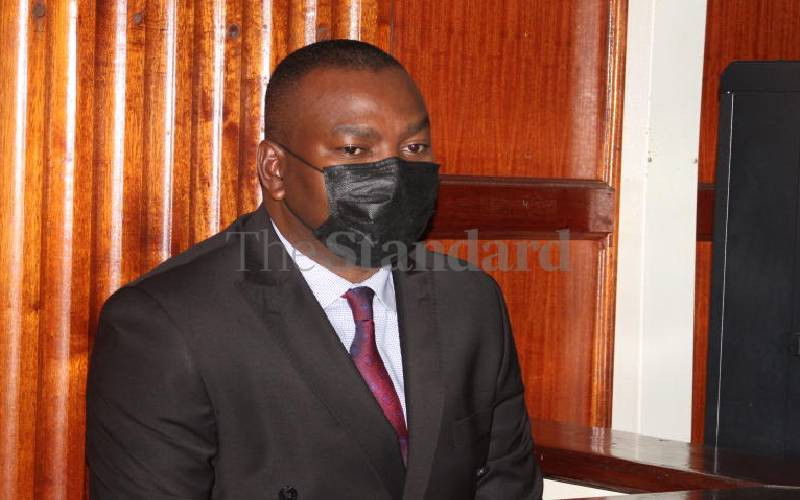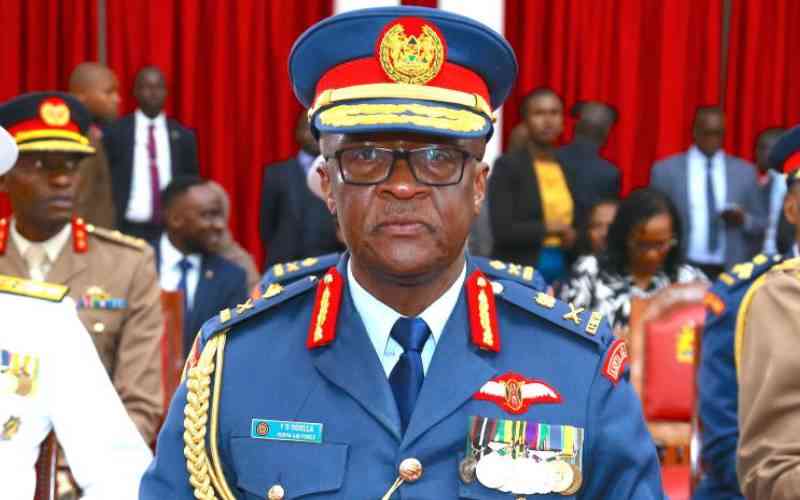Kenya: President Uhuru Kenyatta assented to the controversial Security Laws (Amendment) Bill yesterday, less than 24 hours after Jubilee MPs forced it through Parliament.
The signing into law of the Bill cleared the road for CORD, which announced yesterday that it would move to the High Court next week to challenge the constitutionality of the law and the legality of the process through which it into came into being.
In a brief State address, the president said the new law targets “emerging crimes that reinforce territories, including foreign fighters, radicalisation and cross-border crimes such as poaching and trafficking.”
The Head of State steered clear of the acrimony under which the law was passed. He said the law shall also improve capacity to detect, deter and disrupt any threats to national security.
As the president addressed the nation in pre-recorded statement aired on state-owned KBC, the Opposition led by Wiper party leader Kalonzo Musyoka, Senate Minority Leader Moses Wetang’ula were said to be holed up at undisclosed location combing through the clauses that were passed by Parliament amid chaos in a special sitting requested by the Executive.
And ODM chair John Mbadi disclosed that the opposition was preparing to challenge the new laws in court. “We were not sure at first about what was passed. The process was faulty and it would have been ridiculous to assume something was passed,” Mr Mbadi told The Standard on Saturday.
He said a team led by Mr Wetang’ula, ODM secretary General Ababu Namwamba, Senators Boni Khalwale, James Orengo and Johnston Muthama spent the better part of yesterday poring over the content of what the president assented to.
The Opposition warned that they will not relent until the new laws are set aside. CORD argues that the signing into law of the Security Bill is the beginning of another phase to liberate Kenyans.
CORD leader Raila Odinga promised to release a comprehensive statement after the party’s lawyers have analysed the amendments.
“We will appeal to the court of public opinion and seek judicial intervention to ensure that the law does not become effective,” said Raila in Ugunja, Siaya County, yesterday.
The leaders termed the law as an attempt to re-introduce political hegemony for the benefit of the remnants of Kanu regime, who are keen to re-introduce what Kenyans fought so hard to defeat.
“It is not over yet, although President Uhuru Kenyatta has assented to this law, the battle is not yet over. Our position was and still remains the same; whatever was passed in Parliament is a bad law,” explained Kalonzo.
The announcement and the president’s address to the nation apparently caught many interest groups off-guard. “We have our team that is looking into what was passed. But we were told the deal was not going to be released until the Bill had been signed into law,” said the Kenya National Commission on Human Rights (KNCHR) vice-chair George Morara.
KNCHR is among interest groups that had petitioned MPs to put on hold the Bill, especially on clauses touching on Bill of Rights in the Constitution. Mr Morara claimed human rights groups and the Opposition had been denied a copy of the new law until after the president had assented to it.
But the National Assembly Majority Leader Adan Duale denied the claims. Mr Duale said that the clauses that were of concerns to the Opposition and media were either deleted or amended. “A committee comprising 22 members, 11 from CORD and 11 from Jubilee endorsed the Bill. The four senators who were allowed into Parliament are the ones who caused the chaos,” he said.
Stay informed. Subscribe to our newsletter
Contacted, a former member of the defunct Committee of Experts, who sought anonymity pointed out that the Opposition have a prima facie case. The only option available now is to move to the High Court where the constitutionality of the entire Act or sections of it can be challenged. “Article 24 of the Constitution provides that in the case where a right or fundamental freedom in the Bill of Rights is limited by law, it shall only be to the extent that the limitation is reasonable and justifiable in an open and democratic society. One can question whether it is reasonable to require all that the new law is seeking,” he says.
The Act can also be challenged on the basis of insufficient public participation as required by the constitution.
Njonjo Mue, a human rights advocate and international law expert questioned the haste with which the amendments were executed.
“What has happened is a travesty. We do not know what Bill was passed, but the new law can be challenged on the basis of the manner in which it was passed. Overall, the process portrayed Speaker Justin Muturi as acting at the behest of the Executive. MPs have a constitutional right to participate in the deliberations in the House but they were not accorded the opportunity and time to do so,” he said.
The lawyer points out the intransigence of the Executive and the governing coalition provides a heads-up of what to expect ahead of the next elections.
“This had little to do with containing terrorists but everything to do with terrorising citizens into submitting to every whim of the state, to stop us from exposing the rot, to never point out that the Emperor’s new clothes are too revealing, and thereby to eventually guarantee that the prophesied 20-year rule of Jubilee becomes a reality.”
The Editors Guild equally voiced concern that the new law is an onslaught on the freedom of the Press. The Guild’s Secretary for Programmes David Ohito said journalists will on Monday go to court to seek suspension of the new law.
“We have known for the past 12 months that the Jubilee administration has been preparing to gag the media so that we don’t report corruption, insecurity, and human rights abuses. We have already given our lawyers led by James Orengo instruction to file a case immediately to challenge the constitutionality of the new laws. We want journalists to realise that they are the last mile of democracy,” says Ohito.
The Kenya Union of Journalists weighed in the debate saying the executive is deliberately hemming in media practitioners with laws that do not advance human dignity.
“We are heading to court. The new law imposes hefty fines on individual journalists after ‘media’ was deleted and replaced with ‘person’ which transfers collective responsibility from the employer to individual journalists,” KUJ chair Oscar Obonyo warned.
 The Standard Group Plc is a
multi-media organization with investments in media platforms spanning newspaper
print operations, television, radio broadcasting, digital and online services. The
Standard Group is recognized as a leading multi-media house in Kenya with a key
influence in matters of national and international interest.
The Standard Group Plc is a
multi-media organization with investments in media platforms spanning newspaper
print operations, television, radio broadcasting, digital and online services. The
Standard Group is recognized as a leading multi-media house in Kenya with a key
influence in matters of national and international interest.
 The Standard Group Plc is a
multi-media organization with investments in media platforms spanning newspaper
print operations, television, radio broadcasting, digital and online services. The
Standard Group is recognized as a leading multi-media house in Kenya with a key
influence in matters of national and international interest.
The Standard Group Plc is a
multi-media organization with investments in media platforms spanning newspaper
print operations, television, radio broadcasting, digital and online services. The
Standard Group is recognized as a leading multi-media house in Kenya with a key
influence in matters of national and international interest.







